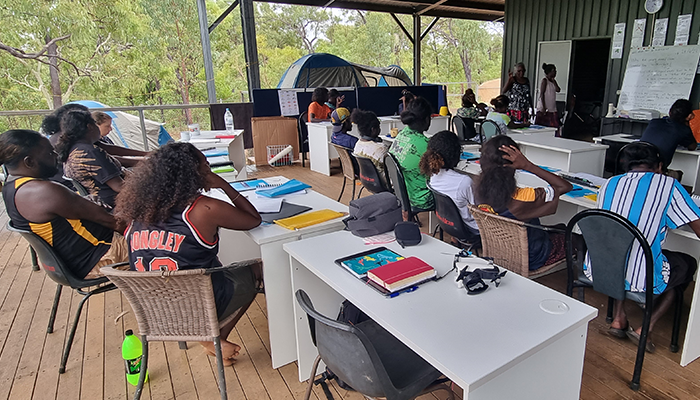A scientific collaboration between Macquarie University and industry partners has been awarded a $427,510 Australian Government grant to support the development of new highly sensitive, non-invasive cancer diagnostic kits.
The grant, which has been awarded as part of the Australian Research Council Linkage Project scheme, will bring together experts from Macquarie led by Dr. Dayong Jin, Professor Nicolle Packer, Professor James Piper, Associate Professor Robert Willows and Professor Simon Foote with Australian biotechnology industry partners Minomic International Limited and Patrys Ltd.
The project will combine Macquarie’s new Super Dot nanocrystal technology with Minomic’s and Patrys’ antibodies directed against prostate and multiple myeloma cancer, respectively.
“This is an exciting example of how Macquarie researchers are working with Australian industry partners to create innovative technological solutions to substantial health problems,” says Professor Sakkie Pretorius, Deputy Vice-Chancellor (Research).
Dr. Jin and colleagues from Macquarie University have developed highly sensitive technologies using super-bright nanocrystals that will potentially enable the detection of single abnormal cells in body fluids, and will provide the basis for new, sensitive and non-invasive, screening of multiple myeloma, prostate cancer and other malignancies.
“The Superdot technology offers unique advantages that will have both diagnostic and therapeutic application for the detection and treatment of prostate cancer. Minomic is extremely pleased to be part of this project,” said Dr Brad Walsh, CEO of Minomic International Ltd. The company is developing a range of products for prostate cancer based on its patented monoclonal antibody for use in both blood and urine.
Patrys’ previous collaboration with Professor Packer showed that PAT-SM6 detects specific changes in the proteins present on the surface of multiple myeloma cells, but not on normal cells. These cancer modified cells in the patients’ blood and urine are very rare in early stages of disease and their detection poses a “needle-in-a-haystack” challenge at both the research and clinical levels. Current diagnostic tests are not sensitive enough to detect these rare-event cells, resulting in an inefficient early detection and diagnosis of cancer and consequently poor prognosis.
Patrys CEO, Dr. Marie Roskrow, said: “Patrys is very proud to be part of this exciting and cutting-edge project and welcomes the opportunity to explore the innovative aspects of Patrys’ antibodies. The possibility to use Patrys’ antibodies as cancer diagnostics as well as therapeutics is very exciting and potentially brings additional opportunities and value to the Patrys’ pipeline.”
The grant, which has been awarded as part of the Australian Research Council Linkage Project scheme, will bring together experts from Macquarie led by Dr. Dayong Jin, Professor Nicolle Packer, Professor James Piper, Associate Professor Robert Willows and Professor Simon Foote with Australian biotechnology industry partners Minomic International Limited and Patrys Ltd.
The project will combine Macquarie’s new Super Dot nanocrystal technology with Minomic’s and Patrys’ antibodies directed against prostate and multiple myeloma cancer, respectively.
“This is an exciting example of how Macquarie researchers are working with Australian industry partners to create innovative technological solutions to substantial health problems,” says Professor Sakkie Pretorius, Deputy Vice-Chancellor (Research).
Dr. Jin and colleagues from Macquarie University have developed highly sensitive technologies using super-bright nanocrystals that will potentially enable the detection of single abnormal cells in body fluids, and will provide the basis for new, sensitive and non-invasive, screening of multiple myeloma, prostate cancer and other malignancies.
“The Superdot technology offers unique advantages that will have both diagnostic and therapeutic application for the detection and treatment of prostate cancer. Minomic is extremely pleased to be part of this project,” said Dr Brad Walsh, CEO of Minomic International Ltd. The company is developing a range of products for prostate cancer based on its patented monoclonal antibody for use in both blood and urine.
Patrys’ previous collaboration with Professor Packer showed that PAT-SM6 detects specific changes in the proteins present on the surface of multiple myeloma cells, but not on normal cells. These cancer modified cells in the patients’ blood and urine are very rare in early stages of disease and their detection poses a “needle-in-a-haystack” challenge at both the research and clinical levels. Current diagnostic tests are not sensitive enough to detect these rare-event cells, resulting in an inefficient early detection and diagnosis of cancer and consequently poor prognosis.
Patrys CEO, Dr. Marie Roskrow, said: “Patrys is very proud to be part of this exciting and cutting-edge project and welcomes the opportunity to explore the innovative aspects of Patrys’ antibodies. The possibility to use Patrys’ antibodies as cancer diagnostics as well as therapeutics is very exciting and potentially brings additional opportunities and value to the Patrys’ pipeline.”



